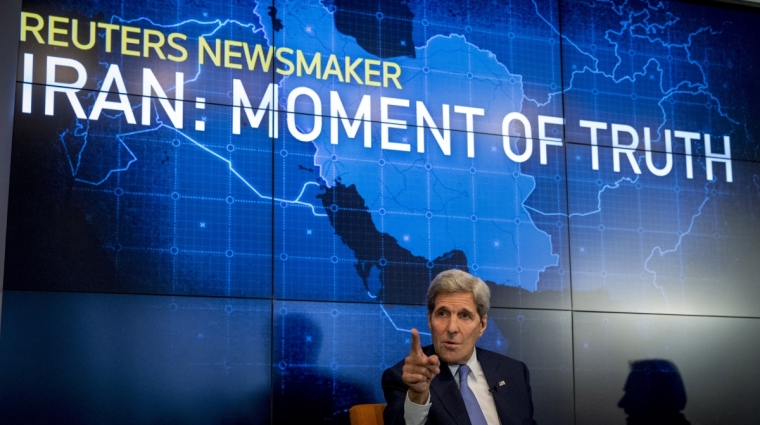Franklin Graham urges President Obama to listen to retired generals, nix Iran nuke deal

NEW YORK (Christian Examiner) – Billy Graham rarely spoke on politics in public during his 60-year evangelistic career. Not so his son, Franklin Graham.
The evangelist and head of Samaritan's Purse is encouraging members of Congress to reject President Barack Obama's nuclear agreement with Iran because people in the know claim it will almost certainly lead to full scale war in the Middle East.
On Aug. 26, a group of more than 200 retired generals and admirals, including Family Research Council's Lt. Gen. (Ret.) Jerry Boykin, penned a letter to Congress asking it to reject the president's deal with Iran.
The career officers wrote the letter after a handful of recently retired officers published an open letter praising the deal, which – according to President Obama – cuts off Iran's path to a nuclear weapon and prevents war. President Obama held the letter up as evidence the military community was supportive of the agreement.
But the 200 retired officers who wrote the letter asking Congress to kill the deal said the proposed agreement, already approved by the United Nations, will give the world's largest state sponsor of terror just what it wants: billions in cash to fund Iran's nuclear program.
"This agreement will enable Iran to become far more dangerous, render the Mideast still more unstable and introduce new threats to American interests as well as our allies. In our professional opinion, far from being an alternative to war, the Joint Comprehensive Plan of Action makes it likely that the war the Iranian regime has waged against us since 1979 will continue, with far higher risks to our national security interests. Accordingly, we urge the Congress to reject this defective accord," the officers said in the letter.

Boykin, who now serves as FRC's executive vice president, was one of the original members of Delta Force, served as the commander of the U.S. Army Special Forces and, in his final years in public service, was Deputy Undersecretary of Defense for Intelligence.
Boykin said in a radio interview with FRC's President Tony Perkins Aug. 27 that the letter was bi-partisan and had the objective of getting Congress to squash the accommodations the White House made in order to land a public relations win.
"The military has never really had proper input on this," Boykin said. "You know, you can always find some spokesman in the military uniform who will say, you know, that the president has asked for advice and counsel from his military leaders. That is simply not true."
Boykin said the group was made up of "retired military officers who have nothing to lose, but the future or our country."
The letter from the 212 officers should make Congress take note, Graham wrote on his Facebook page.
Graham, in addition to Boykin, pointed to Air Force Lt. Gen. (Ret.) Thomas McInerney, who was vice commander for the Air Force in Europe. McInerney said he "considers the agreement the most dangerous nuclear accord in U.S. history."
"The number one leading radical Islamic group in the world is the Iranians. They are purveyors of radical Islam throughout the region and throughout the world. And we are going to enable them to get nuclear weapons. Why would we do that?" McInerney asked.
"That's a great question, President Obama and Congress," Graham said. "Let's pray that Congress will have the wisdom to stand up and vote against this dangerous proposal. If you're as concerned as I am, let your representative in Congress know today that they should vote no to the Iran nuclear deal."
Recent polls have indicated Americans are strongly against entering into a nuclear agreement with Iran. The Senate will vote on the proposal before Sept. 17.